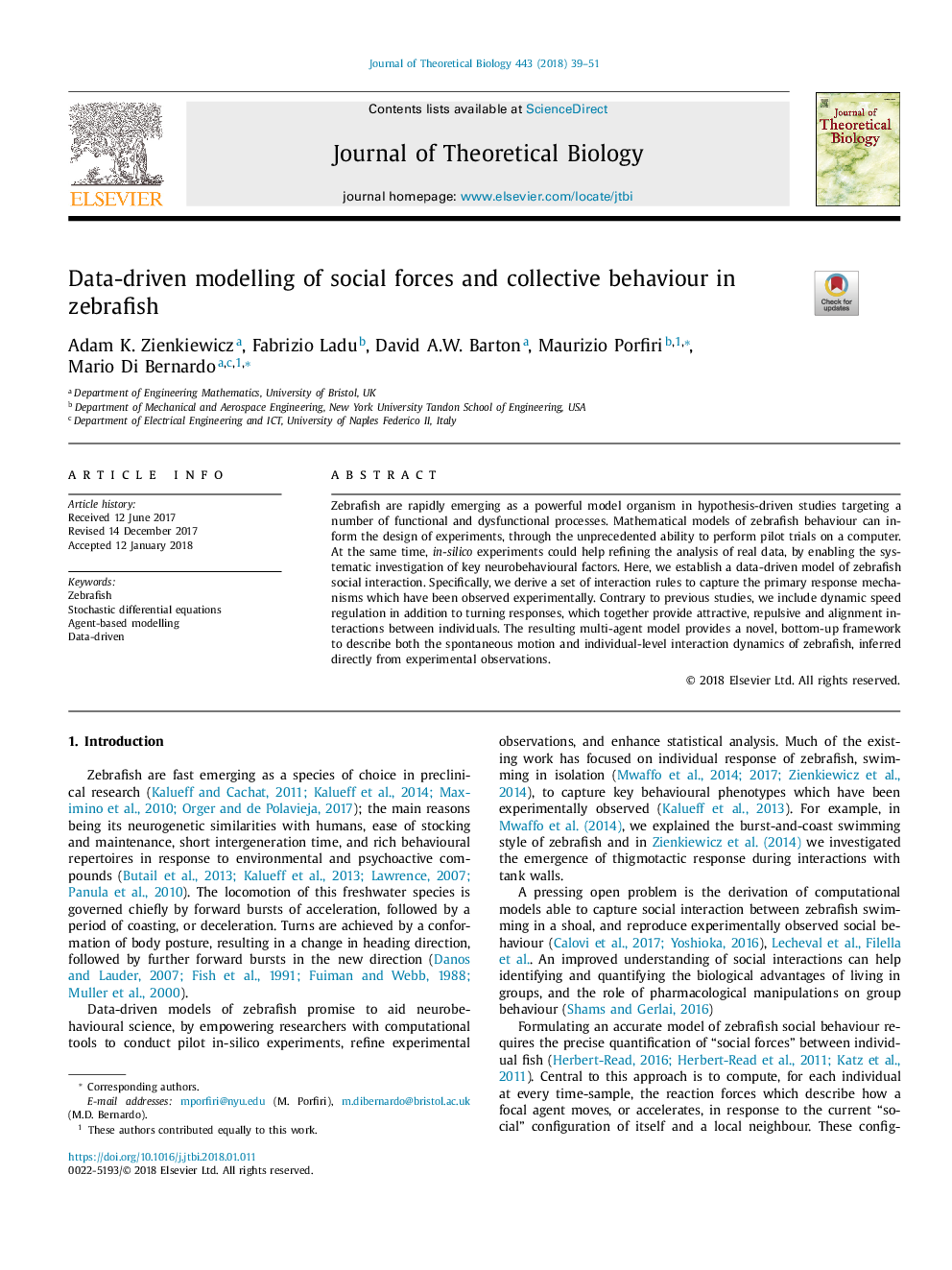| Article ID | Journal | Published Year | Pages | File Type |
|---|---|---|---|---|
| 8876793 | Journal of Theoretical Biology | 2018 | 13 Pages |
Abstract
Zebrafish are rapidly emerging as a powerful model organism in hypothesis-driven studies targeting a number of functional and dysfunctional processes. Mathematical models of zebrafish behaviour can inform the design of experiments, through the unprecedented ability to perform pilot trials on a computer. At the same time, in-silico experiments could help refining the analysis of real data, by enabling the systematic investigation of key neurobehavioural factors. Here, we establish a data-driven model of zebrafish social interaction. Specifically, we derive a set of interaction rules to capture the primary response mechanisms which have been observed experimentally. Contrary to previous studies, we include dynamic speed regulation in addition to turning responses, which together provide attractive, repulsive and alignment interactions between individuals. The resulting multi-agent model provides a novel, bottom-up framework to describe both the spontaneous motion and individual-level interaction dynamics of zebrafish, inferred directly from experimental observations.
Related Topics
Life Sciences
Agricultural and Biological Sciences
Agricultural and Biological Sciences (General)
Authors
Adam K. Zienkiewicz, Fabrizio Ladu, David A.W. Barton, Maurizio Porfiri, Mario Di Bernardo,
